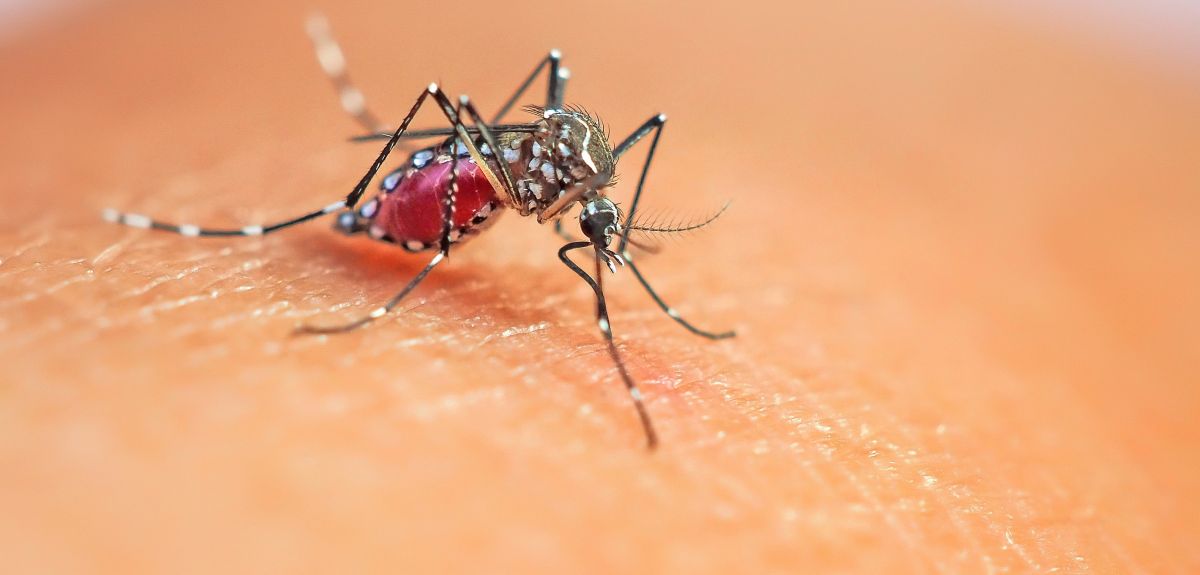
New multidisciplinary project will help forecast where and when deadly disease outbreaks are likely to occur
DART (Dengue Advanced Readiness Tools), a new project led by Oxford University, has received funding from Wellcome to use climate data to better predict and prepare for infectious diseases outbreaks.
The connection between climate change and the spread of infectious disease is often overlooked, or not made at all. This has resulted in a critical shortage of tools that model the relationship between climate change and disease outbreaks, and those that do exist are often complex and not accessible for local health officials and policy-makers. Without these, decision-makers are in danger of finding themselves unprepared, leaving communities unprotected in the face of increasing disease outbreaks, risking the lives of millions.
Felipe Colón, Technology Lead at Wellcome
The climate crisis is a health emergency which is threatening the lives and wellbeing of communities around the world in many ways – including the spread of infectious diseases. As global temperatures continue to warm, more places are becoming suitable habitats for disease-carrying mosquitoes. Increases in extreme weather events like storms and floods can also contaminate water supplies and disrupt access to safe sanitation, causing the spread of life-threatening infections.
Wellcome is supporting global research to advance solutions to address these urgent health threats, and has announced funding for 24 research teams in 12 countries around the world to develop innovative digital tools to model the relationship between climate change and infectious disease.
The £22.7 million funding will allow these projects will address critical gaps in understanding about where and when deadly disease outbreaks are likely to occur, helping policy-makers to plan ahead, prepare healthcare systems and increase treatment accessibility and resources, and respond rapidly with targeted and efficient public health measures, saving more lives.
The DART Project brings together a community of relevant experts on climate data and infectious disease, involving scientists from several departments at the University of Oxford, alongside Vietnam’s National Institute of Hygiene and Epidemiology and the University of Science and Technology of Hanoi. The multidisciplinary team aims to connect meteorological, hydrological, entomological, human behaviour and epidemiological data to provide a dengue forecasting and visualisation resource responding to the needs of health officers, the general public, and clinicians.
The project will concentrate on two case study cities, the Vietnamese capital Hanoi, which has experienced a recent emergence of dengue fever, and Ho Chi Minh City, which has persistent, high levels of dengue occurrence. Dengue fever is a viral infection transmitted to humans through the bite of infected mosquitoes and can be dangerous or life threatening if left untreated.
Dr Sarah Sparrow, and Professors Min Chen and David Wallom from the Oxford e-Research Centre will work with colleagues in the Oxford Clinical Research Unit and Oxford Departments of Physics and Biology to analyse epidemiological and weather forecasting data and produce meaningful information such as size, duration and timing of dengue outbreaks for public health officers, risk of exposure for the general public, and hospital/ICU bed occupancy for clinicians.
Dr Sarah Sparrow (Department of Engineering Science), Principal Investigator for DART, has extensive experience in preparing and analysing large ensembles of climate model output. She said: ‘The project will produce visualisations for the general public, like the UK’s pollen forecast which aims to help the public reduce their exposure and take appropriate action, to warn people of periods of likely high incidence of dengue fever, and provide some practical advice on what to do to reduce the risk of infection, as well as providing visualisations for stakeholders like the Centre for Disease Controls and hospitals in affected areas. In the future we hope to expand the tool to other dengue-afflicted areas of the world.’
More information about the funded projects can be found on the Wellcome website.
 Largest ever UK study reveals stark ethnic and social inequalities in lung cancer diagnosis
Largest ever UK study reveals stark ethnic and social inequalities in lung cancer diagnosis
 Oxford’s gargoyles come to life in new Extended Reality (XR) interactive experience
Oxford’s gargoyles come to life in new Extended Reality (XR) interactive experience
 Treating bullying as everyone’s problem reduces incidence in primary schools
Treating bullying as everyone’s problem reduces incidence in primary schools
 Oxford's Ashmolean Museum saves Fra Angelico masterpiece to go on public display from December
Oxford's Ashmolean Museum saves Fra Angelico masterpiece to go on public display from December
 New, ARIA-backed project aims to unlock radically cheaper AI hardware
New, ARIA-backed project aims to unlock radically cheaper AI hardware